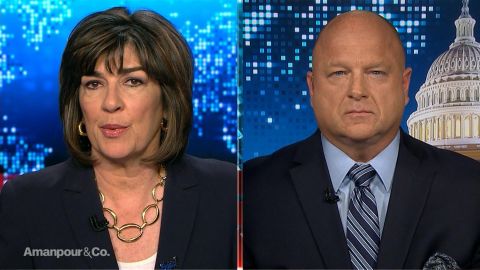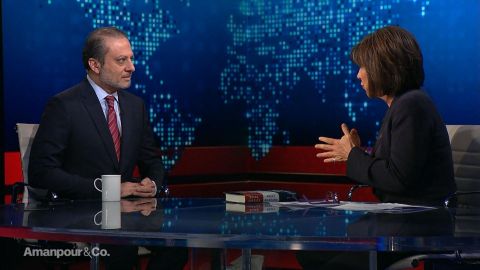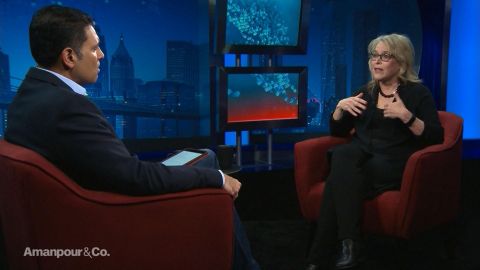Read Transcript EXPAND
CHRISTIANE AMANPOUR: That is this call to cut off aid — the announcement to cut off aid — to these Central American countries. As you heard, the president say, you know, “Why should we keep sending aid if they’re not doing anything to stop the caravans.” But do you think — and you heard Ambassador Jacobson, are you concerned that actually it may have the opposite effect, to make it worse?
DAVID URBAN, PRESIDENT, AMERICAN CONTINENTAL GROUP, A LOBBYING FIRM: Well, Christiane, you know, we need the governments of those three countries to be active partners with us in addressing these issues, right. So, there’s a reason that these folks are fleeing their countries and it’s because of crime and unstable conditions in their homeland. And so, those governments need to really focus on the root causes of what these folks are — why they’re departing and why they’re fleeing at such great risk to themselves. And so, I think the president’s made the case and has made the decision. Is making the case now that the roughly $100 million a year that we send these governments, they’re using to stay in power and enrich themselves rather than to really address the root causes of why the folks are feeling. So, you know, you can you can make the argument that we should be spending more and we’ve done that, for example, United States knows how to do this, when you have a government that wants to help. Colombia, the United States worked with Colombia and Plan Colombia, putting in billions of dollars in helping turn around what was a narco state at the time and do a really, you know, robust economy and a great ally.
So, there’s models for doing this and — when the governments want to help. And when they’re not helping, like these three governments are, I don’t believe that there’s a great demand in hue and cry here in Washington to keep throwing good money after bad. Just to that point, Senator Pat Leahy, who is a Democrat, you know, recently has noted that in a “New York Times” article that he believes that while we should be helping humanitarian causes, we shouldn’t help these governments which may be questionable remain in power.
AMANPOUR: David Urban, I understand where you’re coming from. I just wonder whether this is more about President Trump’s, you know, politics rather than policy and sort of, you know, the transactional nature of his politics, as we’ve discussed before on this program. Because the facts are, that in 2017, according to U.S. government stats, some $42 million were sent to these countries. But at the same time, again according to these studies, the so-called Northern Triangle, these three —
URBAN: Right. Sure.
AMANPOUR: — Central American countries, were themselves paying 10 times as much, in the region of $5 billion to try to address the very issues that the president and the U.S. is rightly concerned about. And even President Trump’s, you know, former Homeland Security chief and former chief of staff has talked about how we have to actually mitigate the causes, the push causes in these countries that propel these people out. I’m just wondering whether you think it’s going to have a negative effect and maybe there’s a better way than pulling aid.
URBAN: Look, I don’t disagree that there — that we — you know, look, there obviously needs to be a real move made to help address why these folks undertake this arduous journey, very dangerous to themselves, their families, their children, what makes them leave. There has to be a pretty awful existence to want to leave there.
About This Episode EXPAND
Christiane Amanpour speaks with David Urban about President Trump’s 2020 campaign; and Preet Bharara about his time as the U.S. Attorney for the Southern District of New York, before he was fired by President Trump. Hari Sreenivasan speaks with Dr. Rachel Yehuda about the effects of PTSD.
LEARN MORE


